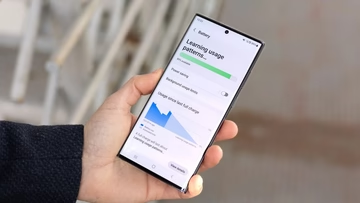
|
Getting your Trinity Audio player ready...
|
1. Introduction
The rise of digital media in Pakistan has given influencers unprecedented power over public opinion. Among these influencers, Iqra Kanwal, a well-known YouTuber from the popular Sistrology channel, has recently faced intense scrutiny. She was summoned by the National Cyber Crime Investigation Agency (NCCIA) over allegations of promoting illegal betting and gambling applications. This controversy has sparked debates about influencer responsibility, legal boundaries, and the future of online marketing in Pakistan. Understanding this case requires a closer look at the apps involved, the way promotions were carried out, and the broader impact on society.
2. Background on Iqra Kanwal and Sistrology
Iqra Kanwal is one of Pakistan’s most followed digital creators, known for lifestyle, family vlogs, and entertainment content under the Sistrology brand. Her relatable personality and family-oriented content earned her millions of followers across YouTube, TikTok, and Instagram. This massive reach made her a desirable face for brands looking to connect with younger audiences. However, as influencer marketing grew in popularity, it also opened doors for questionable partnerships. Iqra Kanwal’s involvement in promoting apps linked to online betting and gambling highlights how influencer fame can become a tool for spreading harmful products, intentionally or otherwise.
3. The NCCIA Summons and Investigation
In 2025, the NCCIA initiated a wide-scale investigation into influencers allegedly promoting illegal apps. Iqra Kanwal was among those summoned for questioning. Reports suggested that she, along with other social media figures, received payments for creating sponsored content that encouraged audiences to download and use betting platforms. Authorities highlighted the seriousness of these promotions, as gambling and online betting are banned under Pakistani law. By summoning her, the NCCIA signaled its intent to hold influencers accountable for spreading content that could financially exploit and mislead citizens. The legal process is still ongoing, but its implications are far-reaching.
4. Betting Apps Allegedly Promoted
Several apps were repeatedly mentioned across media reports and investigations.
- Binomo: Marketed as a trading platform, Binomo has faced accusations of functioning like a betting app. Its promises of quick profits mislead many users.
- 1xBet: A global betting site with operations in multiple countries, but banned in Pakistan. Its wide recognition made its promotions even more concerning.
- Bet365: One of the largest betting operators internationally, also declared illegal in Pakistan.
- B9 Game: A betting-style app that gained popularity through influencer promotions.
- Aviator: A game where players bet on a plane’s flight duration, widely considered addictive and harmful.
- Quotex and similar trading apps: Marketed as investment opportunities, but many operate in the same way as online gambling.
The consistent appearance of these names in reports highlights how influencers were allegedly paid to push platforms directly violating local laws.
5. How the Promotions Were Carried Out
Promotions were typically disguised as financial opportunities. Influencers created short videos or vlogs, subtly encouraging viewers to try these apps. Often, the caption or pinned comment contained a referral link or promotional code. Audiences were told they could “earn money easily” or “start investing from home.” In reality, these apps functioned like gambling platforms, where users risked losing money quickly. The reliance on trusted influencers gave these promotions credibility. For many fans, if a favorite YouTuber or Instagram celebrity recommended an app, it seemed reliable. This trust-based marketing approach amplified the reach and impact of betting apps in Pakistan.
6. Legal Implications of Betting App Promotions in Pakistan
Under Pakistani law, both gambling and the promotion of gambling are illegal. Any person found advertising or endorsing such platforms can face legal consequences, ranging from fines to imprisonment. For influencers, this means that paid collaborations with betting apps not only damage credibility but also place them at risk of criminal charges. The NCCIA’s involvement shows that authorities are becoming more vigilant about online activities. Furthermore, financial regulators are concerned about how these apps move money through unregulated channels, contributing to financial crime. For Iqra Kanwal and others involved, the legal case is a reminder that digital fame does not exempt anyone from the law.
7. Public Reaction and Media Coverage
The controversy drew sharp reactions from the public. Many of Iqra Kanwal’s followers expressed disappointment, questioning why she would use her influence to promote harmful apps. Social media debates erupted, with some defending her by claiming she may not have known the full extent of the apps’ illegality, while others accused her of prioritizing profit over responsibility. Pakistani media outlets covered the story extensively, further fueling discussions on the ethics of influencer marketing. For an influencer who built her image on family-friendly content, the backlash was particularly damaging.
8. Impact on Influencer Marketing in Pakistan
This case has cast a shadow over the influencer marketing industry. Brands are now more cautious in choosing who they collaborate with, while influencers are being forced to evaluate the legality of products before promoting them. Agencies may also begin implementing stricter guidelines to avoid reputational risks. For Pakistani influencers, the incident is a wake-up call: their platforms come with power and responsibility. Failing to respect legal and ethical boundaries can lead not only to loss of followers but also serious legal trouble.
9. Lessons for Audiences and Content Creators
For audiences, the lesson is clear: not every product or service promoted online is safe. Followers must research before downloading or investing in apps. For influencers, the responsibility is even greater. They must ensure transparency in promotions and verify the legality of every partnership. While financial gain may be tempting, the long-term risks of promoting harmful products outweigh short-term profits. The Iqra Kanwal case serves as an example of how quickly credibility can be damaged when responsibility is ignored.
10. Conclusion
The controversy surrounding Iqra Kanwal’s alleged betting app promotions is a defining moment for influencer culture in Pakistan. Apps like Binomo, 1xBet, Bet365, B9, Aviator, and Quotex are under scrutiny because of endorsements from trusted personalities. This case proves that social media fame cannot shield influencers from legal obligations. More importantly, it highlights the need for ethical influencer marketing. Moving forward, both audiences and creators must remain alert, responsible, and informed.
11. Disclaimer
This article is based on publicly available news reports and official notices as of September 2025. Investigations are ongoing, and final outcomes may change as legal proceedings continue.



